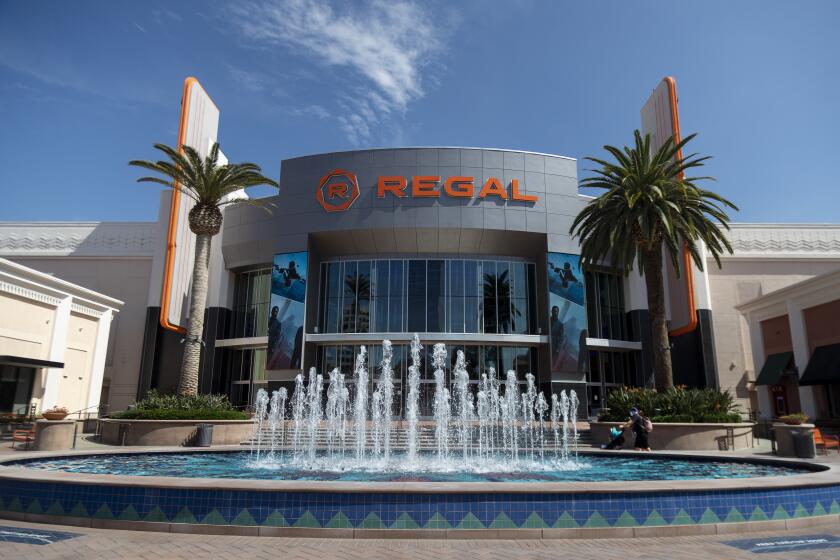Activist investor to Disney: Double your streaming content budget
- Share via
Walt Disney Co. has already made a high-stakes bet to transform itself into a streaming video giant with Disney+. Now, with the COVID-19 pandemic still ravaging the entertainment industry, one of the most prominent activist investors is telling the company to double down.
Daniel Loeb, founder of hedge fund Third Point, wrote in a Wednesday letter to Disney Chief Executive Bob Chapek that the Burbank-based entertainment colossus should permanently cancel its annual dividend and funnel the savings to its streaming efforts.
By suspending its $3-billion dividend, Disney could “more than double” its budget for producing and acquiring content for its streaming services, including Disney+, Loeb wrote.
Loeb bought 1.4 million Disney shares in May when the stock was in a slump because of coronavirus concerns and has since increased his position to about 5.5 million shares, according to FactSet.
He acknowledged that increasing spending on Disney+, Hulu, ESPN+ and other digital platforms will put additional pressure on Disney’s earnings. However, he argued, investing more in the growth of its services will benefit shareholders in the long term and boost Disney’s competitive position at a time when virtually every media company — WarnerMedia, NBCUniversal and ViacomCBS included — is trying to make a splash in subscription video.
“With Disney’s superior tentpole franchises and production capabilities, we believe that the company can exceed the subscriber base of the industry leader, Netflix, in just a few years,” Loeb wrote. “But time is of the essence and the company should consider significant additional investments in content both through production and acquisitions here and abroad.”
Cinema stocks were hammered after Regal owner Cineworld said it would re-close its locations this week.
Disney did not immediately respond to a request for comment.
The company, which reports fiscal fourth-quarter and full-year earnings next month, has been hit hard by the coronavirus, which has kept Disneyland Resort shuttered for months, delayed major film releases and sent movie theaters into crisis mode.
Disney last month said that it would lay off 28,000 workers in its parks, experiences and products division — mostly at Disneyland Resort in Anaheim and Walt Disney World in Orlando, Fla., but also at its retail stores and cruise ships.
The studio has delayed movies including Marvel’s “Black Widow” and Steven Spielberg’s “West Side Story” because of depressed theater attendance levels and continued closures in key markets. It has taken some of its movies directly to Disney+. “Hamilton” debuted on the $6.99-a-month service in July, while “Mulan” was released through the app as a $30 purchase in September, a major blow to theaters.
Loeb has made waves in the entertainment industry before. In 2013, he waged a campaign to get Tokyo-based Sony Corp. to sell off its entertainment assets, including Culver City-based studio Sony Pictures. The company declined to follow his advice.
Loeb’s Disney letter comes as Regal Cinemas’ parent company, Cineworld, prepares to temporarily close all 536 of its U.S. theaters because of the lack of major new Hollywood blockbusters.
While clearly a bad omen for exhibition, the Regal shutdown is also a poor sign for studios that rely heavily on theaters for box-office returns. Disney has been the industry’s most reliable source of theatrical blockbusters in recent years, and most analysts say the expensive movies Disney makes need ticket sales to make a profit.
But Loeb seemed to predict a future in which more of Disney’s high-profile releases go directly to consumers via streaming — a departure from the conventional wisdom in Hollywood.
“While we all share a certain sadness and nostalgia for this eventuality, I am sure that people felt similar emotions about horse-drawn carriages when the automobile was first introduced,” Loeb wrote in his letter. “Every Hollywood executive has been able to enjoy first-run films in the comfort of their home theaters for years. We urge you to democratize this experience and to continue to embrace the future of home entertainment with the utmost urgency in executing the company’s digital transformation.”
Disney has given no indication that it intends to keep sending its big-brand tentpoles to Disney+ after the pandemic subsides, though Chapek said it hoped to use the “Mulan” experiment as a learning opportunity.
Disney+ has exceeded 60 million subscribers since its launch last November, blowing past expectations and hitting the company’s five-year guidance range.
Although the app has clearly been successful the company’s direct-to-consumer business is not yet profitable because of the amount of money Disney is spending to build, promote and create content. for the services. Additionally, the shutdown of film and TV productions has hindered created a roadblock for Disney’s efforts to supply new content to Disney+.
The second season of the popular “Star Wars” series “The Mandalorian,” which finished shooting before COVID-19 clobbered film production, hits the service this month.
Disney is expected to soon give an investor presentation laying out plans to increase its streaming prowess. The company recently said it would create a new international service based on its India-based Star brand with Disney-owned content that does not appear on Disney+, including material from ABC, Freeform, FX and 20th Century Studios.
More to Read
Inside the business of entertainment
The Wide Shot brings you news, analysis and insights on everything from streaming wars to production — and what it all means for the future.
You may occasionally receive promotional content from the Los Angeles Times.










